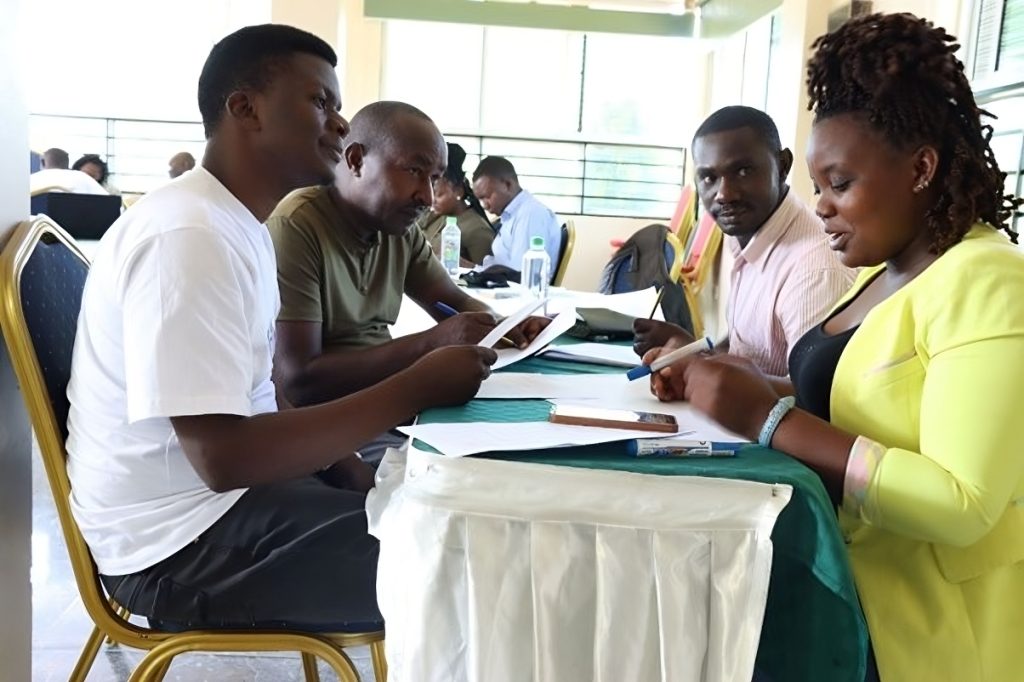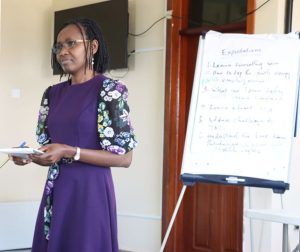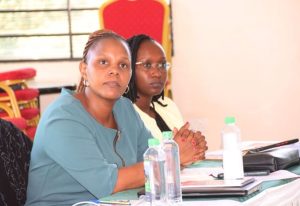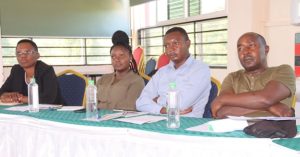Unleashing the Potential of the ISJA Tool in Makueni County
 11 August 2023
11 August 2023

In recent times, promoting dialogue and understanding complex social issues has become crucial for fostering positive change within communities. The Intersectional See Judge Act (ISJA) tool, a powerful methodology that examines issues through three key perspectives – See, Judge, and Act – has proven to be a transformative force. Recently, a training forum in Makueni County showcased the incredible success of utilizing the ISJA tool, where diverse participants from various backgrounds actively engaged to address sexual and reproductive health and rights (SRHR) issues, gender-based violence, and youth-friendly services. This article aims to highlight the achievements and outcomes of the training forum, underscoring the power of storytelling, inclusivity, and commitment to creating tangible change within the community.
Diverse and Inclusive Participation
The cornerstone of the ISJA tool training forum was its commitment to inclusivity. Participants from diverse backgrounds, including religious, community gatekeepers, youth leaders, and persons with disabilities, came together to engage in meaningful discussions. The intersectional approach ensured that multiple perspectives and experiences were considered, creating a comprehensive and inclusive training environment.

The Power of Storytelling
A key highlight of the forum was the effective use of storytelling to connect with the participants emotionally. A contemporary video clip depicting the violation of a woman, coupled with a religious reference from the Book of Judges 19, sparked profound reflections among attendees. This storytelling strategy allowed for a deeper understanding of SRHR, making the subject matter more relatable and impactful.
Interactive Sessions and Empowerment
The interactive nature of the training facilitated the identification of various SRHR issues, in religious texts, which resonated with the participant’s own experiences and contexts. This process empowered the attendees to grasp the complexities of the subject matter and develop a sense of responsibility for addressing these challenges.
Utilizing the ISJA Tool
The participants effectively utilized the ISJA tool to identify religious and cultural barriers that hindered access to Youth Friendly Services (YFS). Through Focused Discussion Groups (FDGs), they created concrete action plans to address these challenges within Makueni County which demonstrated their readiness to take practical steps toward positive change, advocating for improved services and support for the youth.

MaryGorret Musau, a health professional at Makueni County level 4 hospital and Jacinta Musyoka -YSD Makueni following keenly a conversation on access of youth friendly services available at Makueni County.
Continued Engagement and Expansion
The success of the ISJA tool training forum was evident in the request from religious leaders for follow-up training. This indicated the positive and meaningful impact of the forum, as the tool fosters understanding and dialogue on complex social issues. The ISJA approach has the potential to create lasting change by encouraging individuals to reflect on ethical and moral aspects and commit to transformative action.
Partnership for a Better Future
- The forum also paved the way for fruitful partnerships. Health professionals from Makueni County expressed a desire to collaborate with the Circle-Make Way team in Integrating the tool with the life skills program in schools to support the diffusion of the intersectional approach through the tool. This partnership demonstrated the recognition of the ISJA tool’s effectiveness and its potential to create positive change in the community.
- The Director for youth and gender affairs acknowledged the importance of discussing religion and SRHR issues.
Conclusion

From left, Agnetta Nyalita, Gender Director, Elizabeth Mutinda Intern, Department of Gender, Children. Youth, Sports and Social Services at Makueni County, Harrison Musyoka, Makueni Youth Network and Anthony Munywoki Ndolo, C-Net(K) following keenly a discourse on the intersection of religion and SRHR.
The ISJA tool training forum in Makueni County stands as a testament to the power of inclusive participation, storytelling, and the commitment to fostering tangible change within communities. By engaging in thoughtful dialogue and utilizing the ISJA methodology, the participants demonstrated their dedication to breaking down barriers and advocating for youth-friendly services and improved Sexual and Reproductive Health and Rights (SRHR) support. As the forum’s success continues to reverberate through the community, it serves as an inspiration for other regions to adopt similar approaches and work towards building a more equitable and inclusive society.



